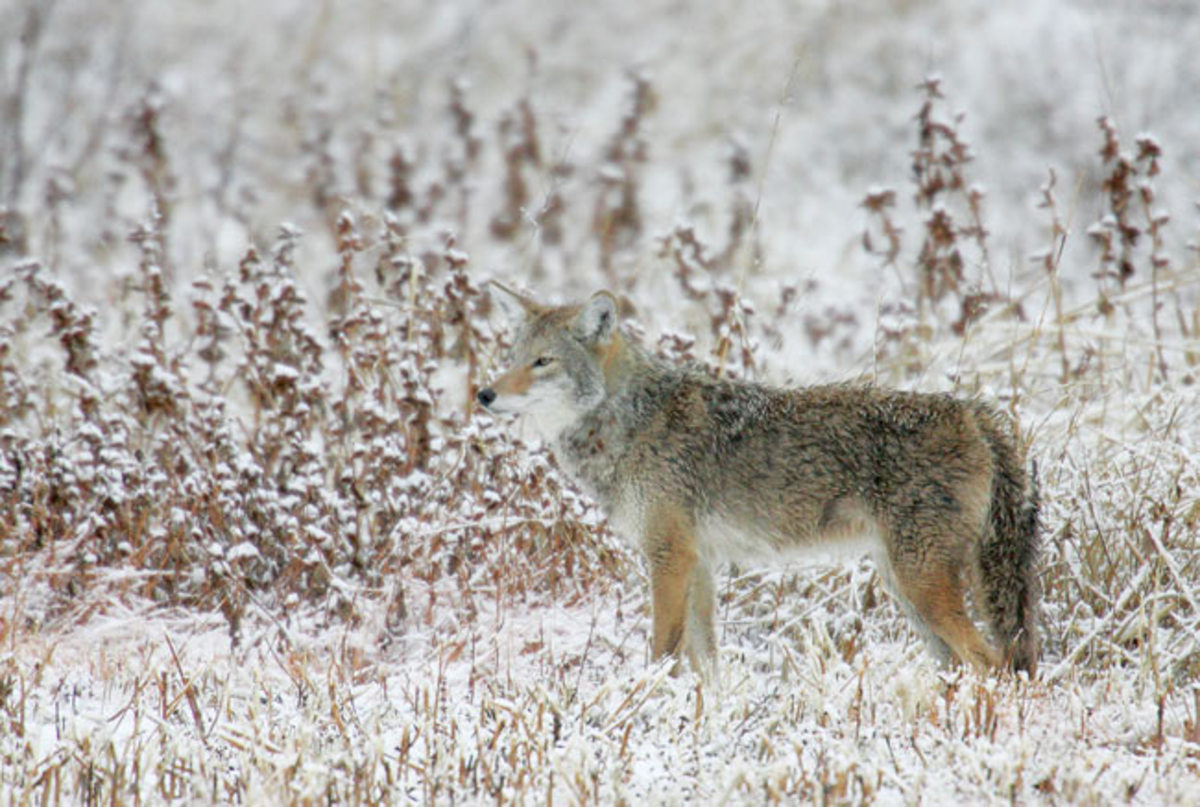
A man in Kensington, New Hampshire, strangled a coyote to death after it attacked his two-year-old son, ending a series of attacks on Monday.
Ian O’Reilly was hiking with his family when he saw a coyote approach in his periphery and go after his son. The coyote grabbed the boy by his clothing, dragging him to the ground, O’Reilly said in an interview with Boston 25 News. The boy’s mother acted quickly and was able to separate the coyote from her son. Luckily, the boy managed to escape without being bitten.
O’Reilly rushed to get between the coyote and his family. He absorbed several aggressive attacks and received bites to the arm and chest. When he realized the animal wasn’t going to leave, he kicked it in the jaw and pinned it to the ground. He was able to grab the coyote’s snout with one hand and place his other on its windpipe. After a nearly 10-minute struggle, O’Reilly killed the animal.
“In the middle of the moment you’re not really thinking or recording a whole lot,” O’Reilly told WMUR 9. “It’s really just instinct. The fact that when we tried to kick and push and get rid of him, it became clear that he was not disengaging.”
Two other coyote attacks were reported earlier that morning, likely by the same animal.
The first attack happened in the town of Hampton Falls at 8:40 a.m. when local police received a report of a coyote attacking a vehicle.
Shortly after at 9:00 a.m., a woman called the Kensington police to report that she and her two dogs had been attacked by a coyote. All three were bitten and received rabies treatment, according to a press release.
The woman, Pat Lee, 62, was interviewed by NBC Boston. “I was running behind the dogs to get them in, and just as I was here, literally, the coyote bit me—in the butt,” Lee said.
The New Hampshire Fish and Game is testing the animal for rabies, a probable cause for this kind of behavior.
O’Reilly received his first round of rabies treatment immediately after the attack but has four more remaining. Unfortunately, he’s becoming all too familiar with the process. O’Reilly’s four-year-old son was bitten by a rabid raccoon last year, Boston 25 News reported.
According to the CDC, 5,000 animal rabies cases are reported each year. Most of them occur in wildlife. Common hosts are bats, raccoons, skunks, and foxes. Rabies is almost always fatal to humans once symptoms appear. If you are bitten or scratched by a wild animal, you should seek medical attention immediately.
Coyotes generally avoid humans. But in some cases they can become aggressive, usually when sick or emaciated. Coyotes, like pigeons, geese, and deer, have adapted to thrive in the wilderness-urban interface, and becoming quite common on the fringes of towns and cities. Though they are generally a much bigger threat to pets than humans, people living in areas with coyotes should be aware that the animals can occasionally threaten humans, especially small children. Attacks are rare but if you are attacked, do as O’Reilly did and fight back.






